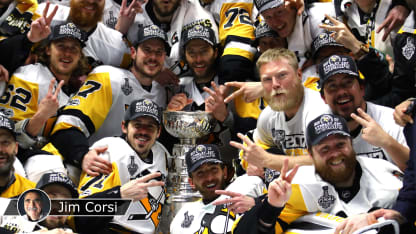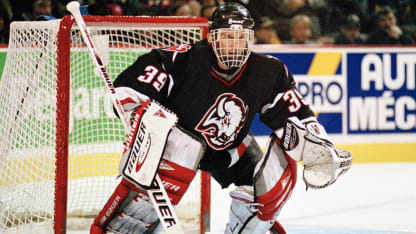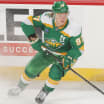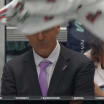So, I'm in a meeting going over video and I'm saying that Cechmanek kind of hulks when he makes a save, so we've got to get inside and look for rebounds. Lindy says to me, 'Hulks?' I'm like, 'Yeah, like the Hulk, the Incredible Hulk.'
So then, with my little body, I do an imitation of Cechmanek after a save and try to make it look like the Hulk. Well, the whole place starts to laugh and Lindy sees a moment where the guys release all their tension.
Everybody is laughing, and from the back of the room one of the players says, 'Thanks Eugene.' I look back and I go, 'Who's Eugene?' The place starts to crack up again.
Well, it turns out that apparently I look like the actor Eugene Levy from the "American Pie" movies.
So, as intense as it gets, with the fear of the unknown for a lot of guys, there's a moment where they felt some relief and could collectively say, 'Yeah, we can do this.'
We chased Cechmanek from the net that night after four goals and we won the game 8-0 to win the series in six games.
The levity helped, but it didn't take away from their focus on every little detail of the game and it didn't stop the coaches from preparing them to be ready for anything.
RELATED: *[Luongo to play 1,000th NHL game*]
The preparation that goes into a playoff series is unlike anything coaches do in the regular season.
You do a prep for every game in the regular season, with a couple bullet points on what the guys are going to do, but in the playoffs, you're looking at the top three guys and what they do, and at the next tier of top guys and what they do. Top teams usually have more depth so the work and detail for your third- and fourth-liners has to be greater.
The meetings are more in depth because you also have more time.
Prior to a game during the regular season it's 'OK, hurry up, because we're playing tonight, and tomorrow it's the next group.'
You use your extra time in the playoffs to pay more attention to what the other team does. You don't do that as much in the regular season, when the focus is typically on what you do.
In the playoffs, you can talk about how a guy plays, but how also to get in his head, how to impact his emotional side. You want guys to go chin to chin. You'll see more pushing and shoving as players get tighter to the net.



















